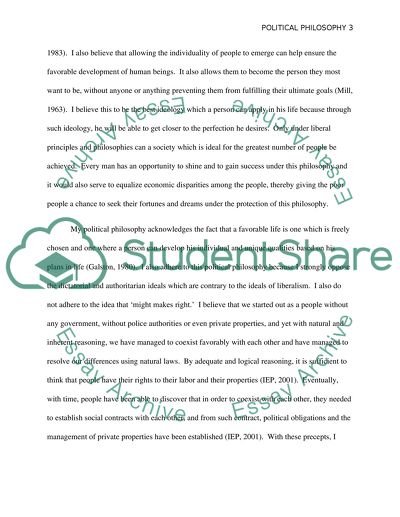Cite this document
(“Polictal Phylosophy. What it it Term Paper Example | Topics and Well Written Essays - 2250 words”, n.d.)
Polictal Phylosophy. What it it Term Paper Example | Topics and Well Written Essays - 2250 words. Retrieved from https://studentshare.org/philosophy/1436254-what-is-your-political-philosophy-how-do-your
Polictal Phylosophy. What it it Term Paper Example | Topics and Well Written Essays - 2250 words. Retrieved from https://studentshare.org/philosophy/1436254-what-is-your-political-philosophy-how-do-your
(Polictal Phylosophy. What It It Term Paper Example | Topics and Well Written Essays - 2250 Words)
Polictal Phylosophy. What It It Term Paper Example | Topics and Well Written Essays - 2250 Words. https://studentshare.org/philosophy/1436254-what-is-your-political-philosophy-how-do-your.
Polictal Phylosophy. What It It Term Paper Example | Topics and Well Written Essays - 2250 Words. https://studentshare.org/philosophy/1436254-what-is-your-political-philosophy-how-do-your.
“Polictal Phylosophy. What It It Term Paper Example | Topics and Well Written Essays - 2250 Words”, n.d. https://studentshare.org/philosophy/1436254-what-is-your-political-philosophy-how-do-your.


